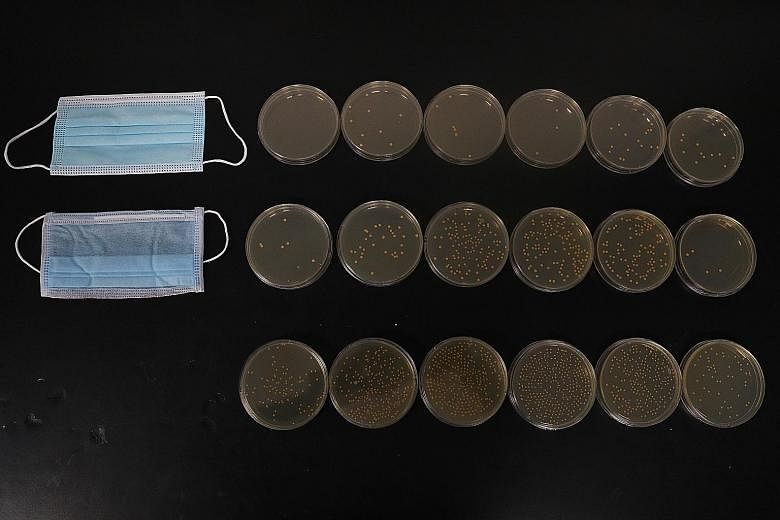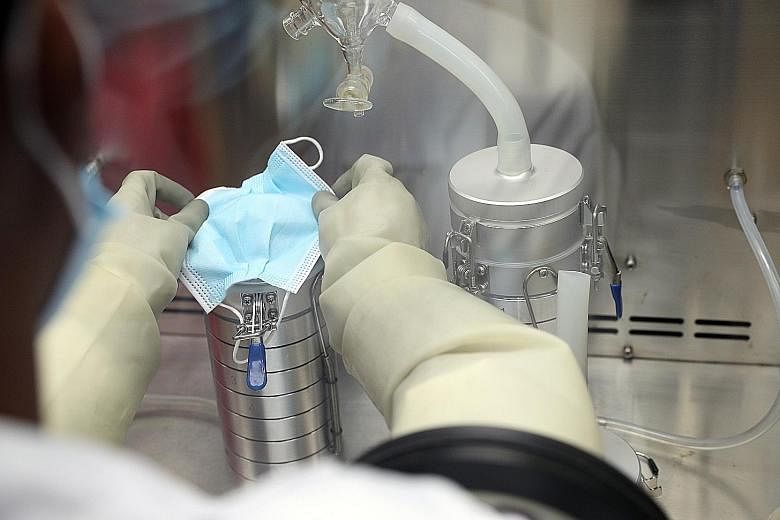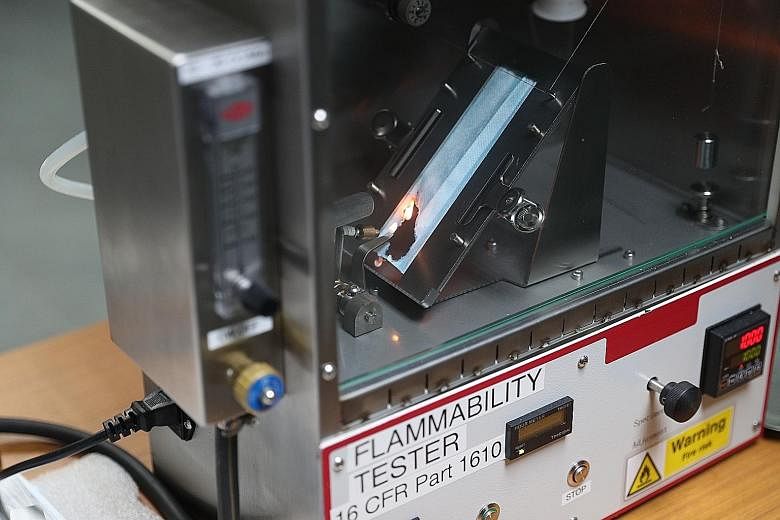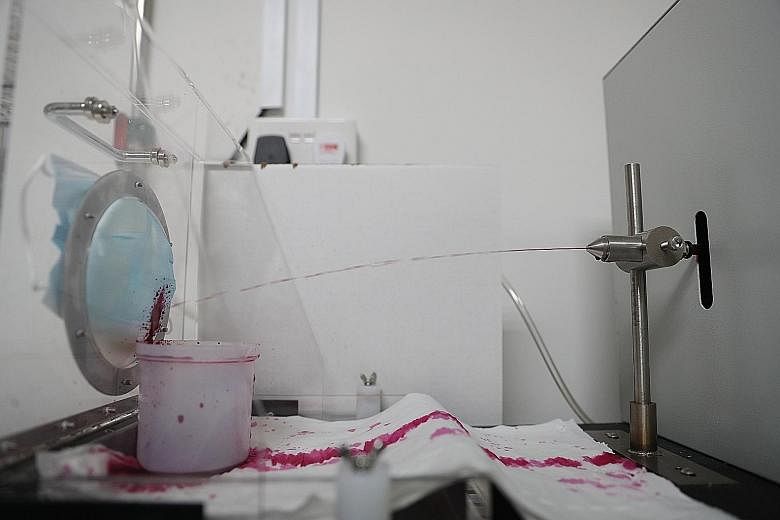Local testing and inspection company, Setsco Services, which ensures that stringent, high standards are upheld in a range of sectors like construction, manufacturing, as well as food and microbiology, has now pivoted to surgical mask testing amid the Covid-19 pandemic.
Noting that there was a rise in demand for surgical masks, chief executive officer Sze Thiam Siong swiftly tapped the company's available resources, including its talent pool of experienced microbiologists and its state-of-the-art testing facilities, and came up with a fully operational mask testing facility in three to four months.
By mid-June, Setsco Services was able to conduct five surgical face mask tests that complied with standards set by ASTM, an international standards organisation.
These included tests for the bacterial filtration efficiency (BFE) of the masks, using the Staphylococcus aureus bacteria in the form of aerosol gel particles, filtered at a mean particle size of 3 microns.
The masks were also tested for their particulate filtration efficiency (PFE), which represents the percentage of submicron particles filtered at 0.1 microns.
In order for the masks to meet ASTM requirements, they would have to achieve both a BFE and PFE score of at least 95 per cent.
Other tests include measuring the fluid resistance of the mask against synthetic blood penetration, a differential pressure test which determines how easily a wearer can breathe through the mask, and the flammability test, to see how quickly the material of the mask can burn and spread fire.
It takes around six to nine days for the five tests to be completed.
So far, the company has tested masks for more than 20 clients, which comprise local suppliers, manufacturers and end users. It is currently working with the Singapore Accreditation Council (SAC) to have its mask testing area accredited.
The increase in demand for safe and reliable products and services amid the Covid-19 pandemic is set to drive the growth of the local testing, inspection and certification (TIC) industry, said Enterprise Singapore and the SAC, which oversees the industry, in a joint statement yesterday.
It added that the strong TIC ecosystem has traditionally supported Singapore as a trade hub and centre of innovation, and recently, in national efforts to combat Covid-19.
Ms Choy Sauw Kook, director-general (quality and excellence) of Enterprise Singapore, said the four growth sectors in the TIC industry - medical and life sciences; food and agriculture; digitalisation and cyber security; and environmental sustainability - are likely to grow even more in a post-Covid-19 world.
In Asean, medical and life sciences, as well as the food and agriculture sectors make up the largest share of demand for TIC support.
Sectors like digitalisation and cyber security as well as environmental sustainability were identified as the fastest-growing sectors requiring TIC support.
Mr Renny Yeo, chairman of the SAC, said that as the demand for TIC services rises, more sophisticated tools will be used, and more skilled workers needed.
"Infrastructure can be built, testing equipment can be bought, but skills are a long-term investment. In the medium to long term, capability development will be a strategic thrust for the SAC as we continue partnering local and overseas stakeholders to upskill local conformity assessment bodies."





